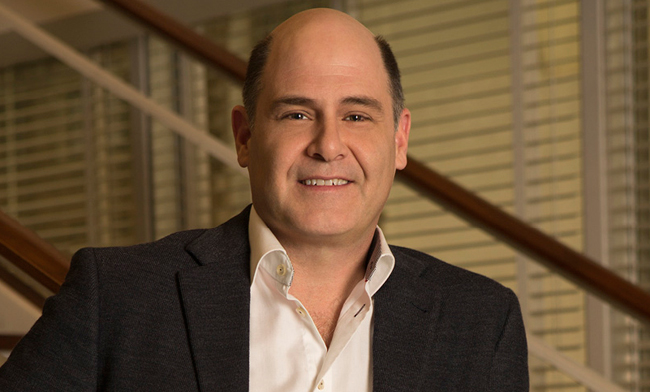Mad Men creator Matthew Weiner reflects on the show's legacy
"I want to end Mad Men, as a writer, the way I think the story was told."


A free daily email with the biggest news stories of the day – and the best features from TheWeek.com
You are now subscribed
Your newsletter sign-up was successful
We're just a few days away from what AMC has dubbed "the beginning of the end" for its critically beloved drama Mad Men. On Sunday night, the network will premiere the first of seven episodes that mark the first half of the period drama's final season. (The second half of the season, which will also consist of seven episodes, will air in 2015.)
It's a surreal moment for the show's cast and crew, who have been immersed in the show's distinctive take on '60s life and culture since 2007. How do you bring a dense, sprawling TV series like Mad Men to a close? During a recent conference call, series creator and showrunner Matthew Weiner spoke to The Week about his reflections on the series as a whole.

When I asked Weiner what he would have done differently if he'd known the show would run for seven seasons, he laughed. "I would have quit. To know that there was this much of it, and that I would have to think of this many different things… It would have been an impossible mountain to climb," he said. "Just having things settled before season five, when I knew there were 37 episodes left, was daunting. You just can't even think about it."
The Week
Escape your echo chamber. Get the facts behind the news, plus analysis from multiple perspectives.

Sign up for The Week's Free Newsletters
From our morning news briefing to a weekly Good News Newsletter, get the best of The Week delivered directly to your inbox.
From our morning news briefing to a weekly Good News Newsletter, get the best of The Week delivered directly to your inbox.
But on some level, he admitted, he was always prepared for the series it would become:
Once I knew that [Mad Men] was going to go beyond the pilot, I always had some idea that it could sustain some growth. I always had a vision: "Wouldn't it be neat to see these people? Not only the actors aging, but to tell the story of New York over that decade in the United States?" New York in 1960 is the center of the world. And it's still a very important part of it — but I can't even explain the dominance of culture, fashion, drama, television, the stock market, publishing, architecture. Everything. And to sort of see that disappear, along with a lot of other things. The pilot had the potential to tell this story, and I always hoped I would get to do it. But if they had told me the first day, "Okay, you're on, you've got 92 episodes and you're going to finish in 2014," I would have been like, "Uh… Can I just do part of it?"
Weiner also discussed the strangeness of coming up with an ending for a TV series, which is by nature designed to be open-ended. "You don't end a series," he said. "That's the whole point: That there's more of it, another season." He specifically cited The Sopranos, on which he worked as a writer and producer, as a touchstone for how to end a TV series the right way:
[From audiences], there's an immediate reaction to it and a long-term reaction to it. If people behaved about the end of The Sopranos the way they do now — with the sort of reverence and understanding of what it was — it would have been a lot more pleasant, probably, for everyone involved. But there was such an uproar and an… I don't know what it was. Now we know that was the perfect ending for the show, and now we know that show is number one, or two, or certainly in the pantheon of the greatest TV shows ever. Did the ending affect that? Yeah. It was the perfect ending.
Weiner concluded by outlining his philosophy as he prepares for the end of Mad Men. "There are good [endings] and bad [endings]," he said. "I want to end Mad Men, as a writer, the way I think the story was told. That's what I'm interested in. It is weird that, in the future, if anybody's watching this show, they will know the whole story."
A free daily email with the biggest news stories of the day – and the best features from TheWeek.com
Scott Meslow is the entertainment editor for TheWeek.com. He has written about film and television at publications including The Atlantic, POLITICO Magazine, and Vulture.
-
 ‘Those rights don’t exist to protect criminals’
‘Those rights don’t exist to protect criminals’Instant Opinion Opinion, comment and editorials of the day
-
 Key Bangladesh election returns old guard to power
Key Bangladesh election returns old guard to powerSpeed Read The Bangladesh Nationalist Party claimed a decisive victory
-
 Judge blocks Hegseth from punishing Kelly over video
Judge blocks Hegseth from punishing Kelly over videoSpeed Read Defense Secretary Pete Hegseth pushed for the senator to be demoted over a video in which he reminds military officials they should refuse illegal orders
